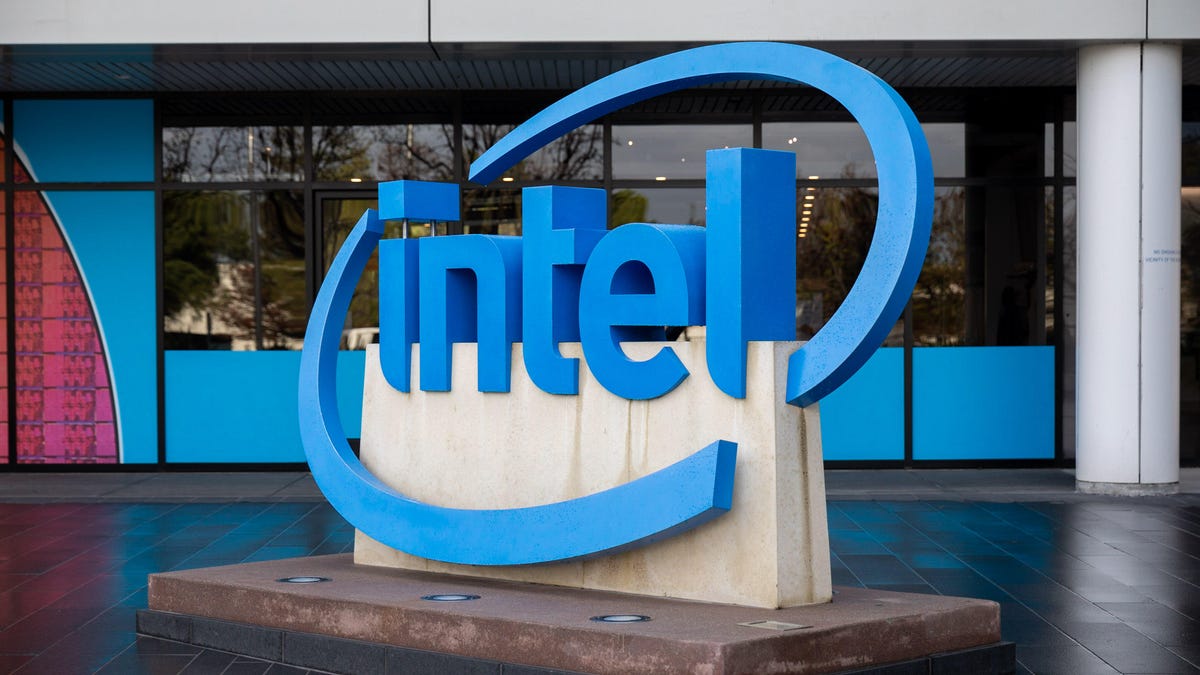Intel will reclaim its chipmaking lead, incoming CEO Gelsinger predicts
The company's fourth quarter was strong, but Intel will rely on outside chip manufacturers in coming years.

Intel headquarters in Santa Clara, California
Intel will reclaim its chipmaking crown, incoming Chief Executive Pat Gelsinger said Thursday, a strong statement given years of manufacturing difficulties. After reviewing improvements to Intel's next-generation manufacturing processes and new chipmaking developments, he expects Intel will once again secure "unquestioned leadership in process technology."
"I was very pleased to see some of the long-term innovation coming out of [technology development] as we work to close any gaps with external foundries as well as leap ahead," said Gelsinger. During his 30-year tenure at Intel, Gelsinger was architect of the key 80486 chip and rose to the chief technology officer job before spending the last eight years as CEO of software company VMware.
Reclaiming that leadership would endow Intel-based PCs with better speed and battery life compared not just to today's Windows machines but also to new MacBooks using Apple's strongly competitive M1 chip.
Gelsinger, who will replace CEO Bob Swan Feb. 15, made an early appearance as Intel reported fourth-quarter financial results. The company reported earnings per share of $1.52, well ahead of analyst expectations, on revenue of $20 billion for the quarter, but also said it expects first-quarter revenue to drop 12% and profit to drop 24% year over year.
Intel has ceded leadership to Taiwan Semiconductor Manufacturing Co., which manufactures chips for rivals including AMD, Apple, Qualcomm and Nvidia and which said this week it'll invest $28 billion into factory expansion in 2021.
In a remarkable change to its business and culture, Intel will become one of those customers for its core products as soon as this year. Analyst firm Trendforce expects TSMC will build lower-end Intel PC processors in the second half of 2021 and midrange and high-end chips in 2022.
But Intel wants to keep most of its manufacturing under its own roof, Gelsinger said. "I'm confident a majority of 2023 products will be manufactured internally," he said, referring to the year Intel's delayed next-generation manufacturing process is expected to go online.
The company has struggled to miniaturize chip electronics. It's only begun moving its processors in earnest to a process with electronics features measuring 10 nanometers -- 10 billionths of a meter -- and in July announced a six-month delay moving to the next-generation 7nm process.
"We've been able to resolve the defects" that held back the 7nm process, Swan said Thursday.
Intel has struggled but recovered before, said Gelsinger, pointing specifically to its slow transition to chips with multiple processing cores from 2005 to 2009. "Great companies are able to come back from periods of difficulty and challenge," he said.

